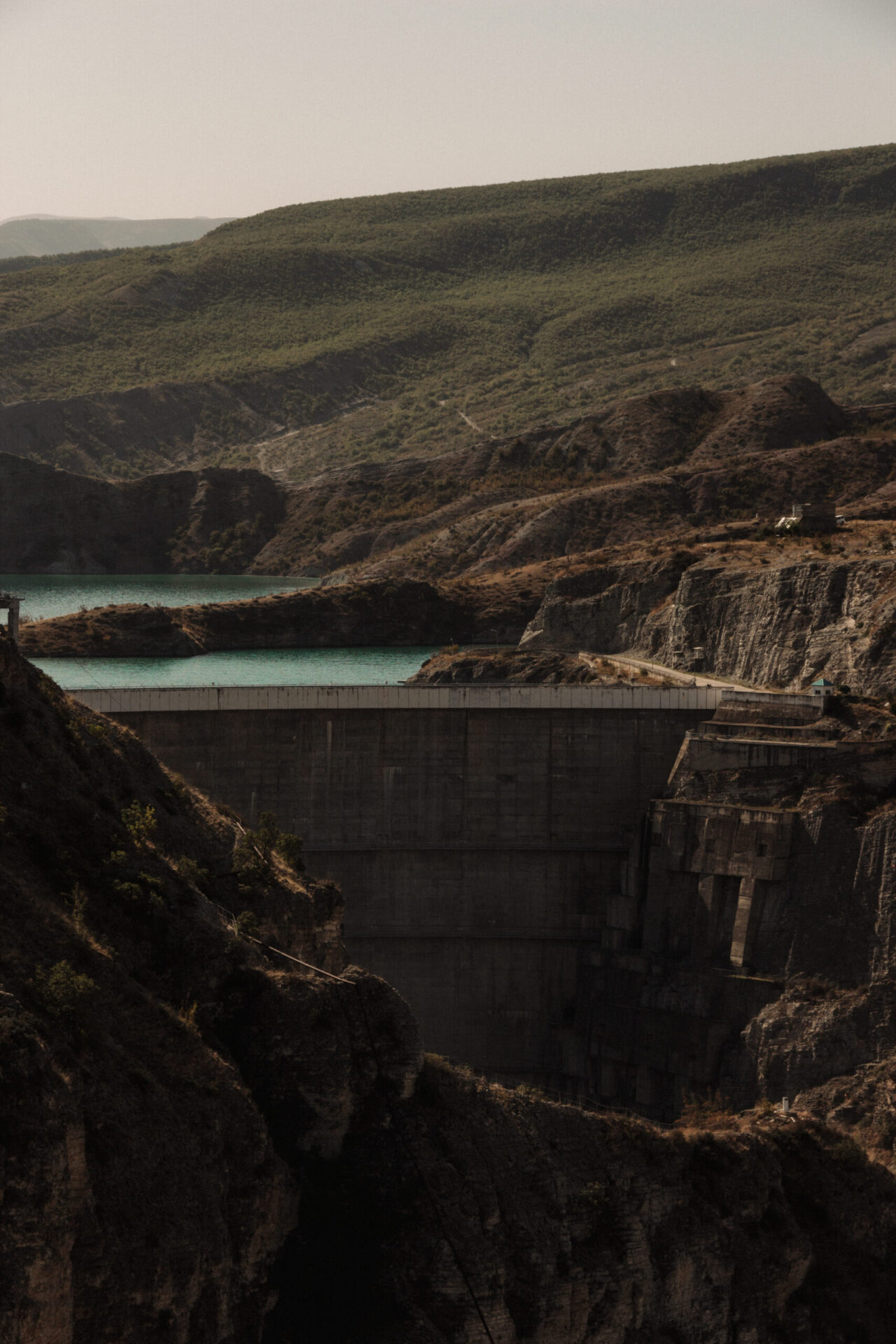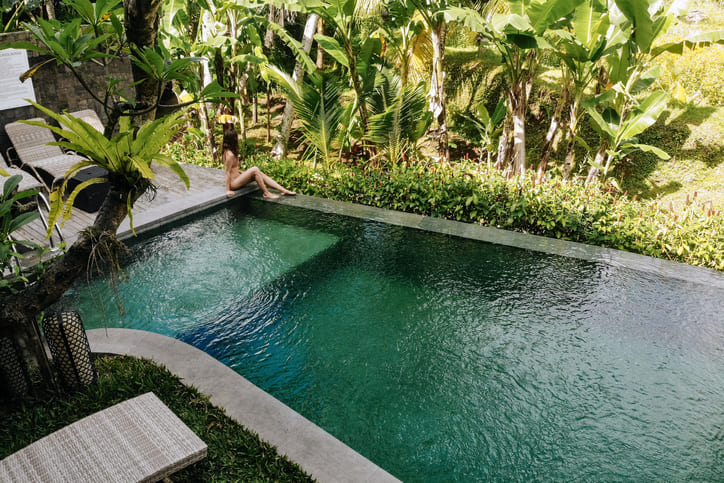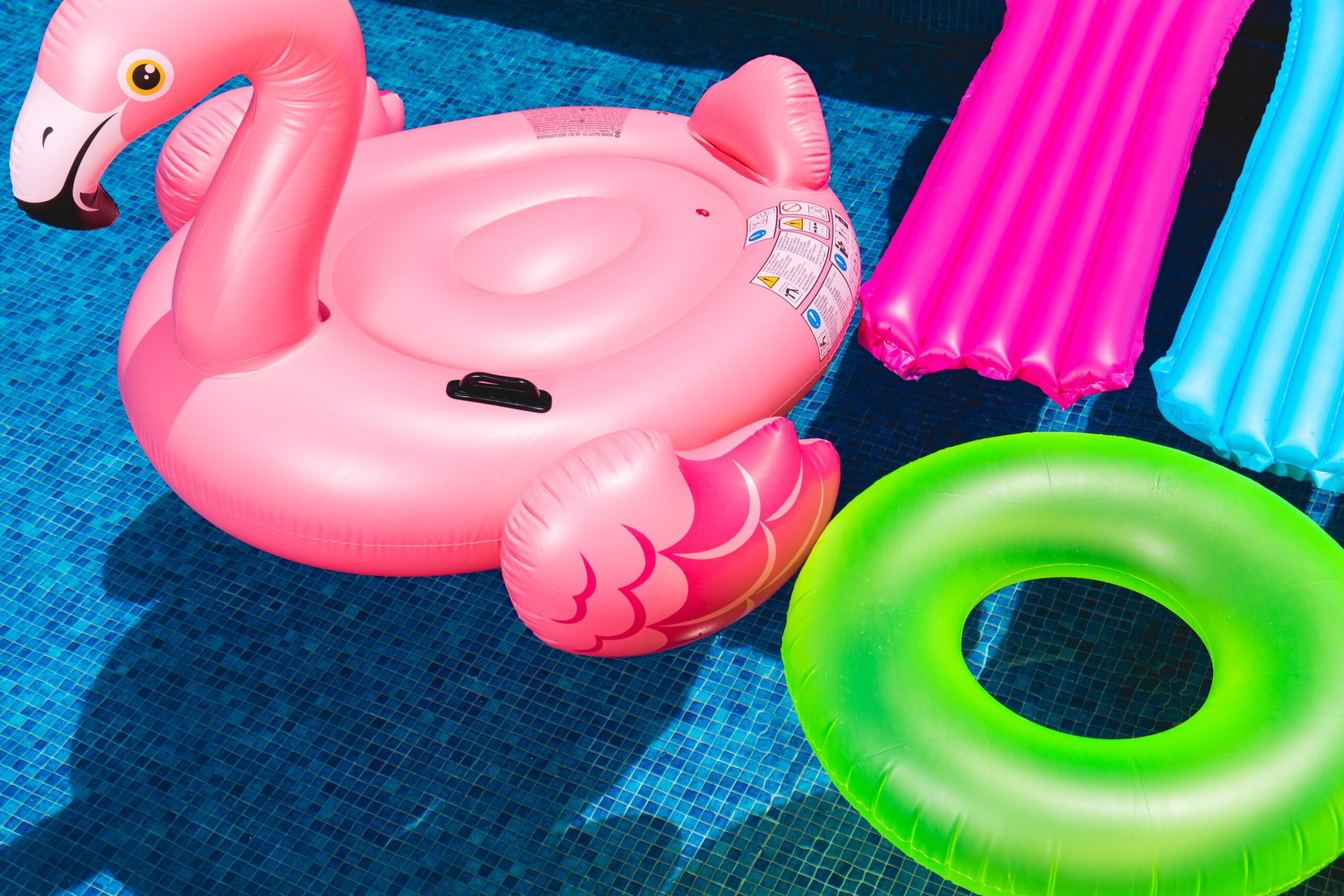In a world where the weather can often be unpredictable, ensuring a comfortable swimming experience is paramount for pool enthusiasts. However, the costs associated with pool heaters can vary greatly, leaving many wondering which option is the most efficient and cost-effective. In this article, we will delve into the intricate details of pool heater costs, exploring different types of heaters, installation expenses, and factors that affect their overall efficiency. Get ready to dive into the world of pool heater cost breakdown, where informed decision-making takes center stage.
Key Takeaways
- Solar heaters have the advantage of being free to operate, eco-friendly, and energy-efficient, although they have high installation costs and slow heating.
- Electric heat pumps are relatively expensive to purchase, but have low operating costs and are ideal for daily use.
- Gas heaters are fairly cheap to install, provide quick heating, and offer precise temperature control, but are expensive to operate and more hazardous than other options.
- Factors that affect heating costs include outside weather, pool size, using a pool cover, utility costs, and preferred temperature.
Types of Pool Heaters and Their Costs
When considering pool heaters, it is important to evaluate the costs associated with each type, including installation, maintenance, and operating expenses. The cost of a pool heater can vary depending on the type and brand chosen. Gas pool heaters are relatively cheap to install, but they can be expensive to operate due to the cost of propane or natural gas. Electric pool heaters are more expensive upfront, but they have lower operating costs. The cost of installation for electric pool heaters includes equipment and labor, which can range from $2,500 to $7,500. Solar pool heaters have a higher initial cost, but they are free to operate and last up to 30 years. The installation cost for solar heaters can be high, but they are environmentally friendly and energy-efficient.
In terms of efficiency, electric heat pumps are ideal for daily use as they have low operating costs. Gas heaters provide quick heating and precise temperature control, but they can be more hazardous and expensive to operate. Solar heaters are the most energy-efficient and eco-friendly option, but they have slow heating times and require light year-round.
Maintenance costs should also be considered when evaluating pool heaters. Gas and electric heaters may require regular maintenance and occasional repairs, which can add to the overall cost. It is important to choose a reputable brand with a good warranty to ensure that any potential issues are covered.
In conclusion, when comparing pool heaters, it is essential to consider the cost of installation, maintenance, and energy consumption. Gas heaters are cheaper to install but expensive to operate, while electric heaters have higher upfront costs but lower operating costs. Solar heaters have a higher initial cost but are free to operate and environmentally friendly. The choice ultimately depends on individual preferences, budget, and specific needs.
Transition: Now that we have discussed the costs associated with pool heaters, let’s explore the advantages and disadvantages of solar heaters.
Advantages and Disadvantages of Solar Heaters
Solar heaters for pools offer several advantages such as being free to operate, eco-friendly and energy-efficient, and having low maintenance requirements. However, they do have some disadvantages, including high installation costs, slower heating compared to other types of heaters, and a requirement for consistent light year-round. These points will be further discussed in terms of the efficiency of solar heaters and a comparison of their installation costs.
Efficiency of Solar Heaters
One factor to consider when evaluating the efficiency of pool heating systems is the cost-effectiveness of utilizing solar heaters. Solar heaters have several advantages that make them an attractive option for pool owners.
- Cost savings: Solar heaters have no operating costs since they utilize free energy from the sun. This can lead to significant savings in the long run, especially in areas with ample sunlight throughout the year.
- Environmental friendliness: Solar heaters are eco-friendly as they do not produce any emissions or rely on fossil fuels. By utilizing renewable energy, pool owners can reduce their carbon footprint and contribute to a cleaner environment.
- Long lifespan: Solar heaters are built to last, with an average lifespan of up to 30 years. This durability ensures that the initial investment in the system pays off over time, making it a cost-effective choice for pool heating.
Installation Cost Comparison
Although solar heaters have the advantage of being cost-effective and environmentally friendly, their high installation costs can be a significant disadvantage when compared to other pool heating options. Solar heaters require the installation of solar panels, which can be expensive upfront. The cost of solar panels can range from $2,000 to $6,500 for the equipment alone, with additional costs for labor ranging from $500 to $1,000. This brings the total installation cost to a range of $2,500 to $7,500. While solar heaters have low operating costs and can last up to 30 years, the initial investment may deter some pool owners. However, for those who are looking for a more affordable heating option, the breakdown of costs for electric heat pumps provides an alternative solution.
Breakdown of Costs for Electric Heat Pumps
When considering the installation of an electric heat pump, it is important to carefully analyze the breakdown of costs, which typically range from $2,500 to $7,500, depending on the equipment and labor involved.
Here is a breakdown of the costs for electric heat pumps:
- Equipment: The cost of the heat pump itself can range from $2,000 to $6,500, depending on the size and efficiency of the unit. It is essential to choose a heat pump that is appropriate for the size of your pool.
- Labor: The installation of an electric heat pump usually requires professional help. The cost of labor can range from $500 to $1,000, depending on the complexity of the installation and the location of your pool.
- Total Cost: Taking into account the equipment and labor costs, the total cost of installing an electric heat pump typically ranges from $2,500 to $7,500.
Despite the relatively high upfront cost, electric heat pumps offer several advantages. They are relatively inexpensive to operate, as they use electricity to transfer heat from the air to the pool water. They also provide consistent heating, making them ideal for daily use.
However, it is important to consider the pros and cons of other pool heating options as well, such as gas heaters. Gas heaters are relatively cheap to install and provide quick heating with precise temperature control. However, they can be expensive to operate and pose more hazards than other options.
Considering the cost breakdown and the advantages and disadvantages of electric heat pumps and gas heaters, it is essential to carefully weigh your options and choose the pool heating system that best fits your needs and budget.
Pros and Cons of Gas Heaters
Gas heaters have their own set of pros and cons. On the positive side, they are relatively cheap to install, provide quick heating, and offer precise temperature control. However, they can be expensive to operate and pose more hazards compared to other heating options. Additionally, considerations such as efficiency, operating costs, safety, installation, and maintenance should be thoroughly analyzed when deciding whether to choose gas heaters for pool heating.
Efficiency and Operating Costs
What are the pros and cons of gas heaters in terms of efficiency and operating costs?
Gas heaters have both advantages and disadvantages when it comes to efficiency and operating costs. Here is a list highlighting these points:
| Pros of Gas Heaters | Cons of Gas Heaters |
|---|---|
| – Fairly cheap to install | – Expensive to operate compared to other options |
| – Quick heating of the pool water | – Higher operating costs due to the cost of gas |
| – Precise temperature control | – More hazardous than other heating options |
Gas heaters may provide quick and precise heating, but they can be costly to operate and pose potential safety hazards. However, it is essential to consider other factors such as pool size, climate, and utility costs when evaluating the efficiency and operating costs of gas heaters.
Moving forward, it is crucial to discuss the safety and hazards associated with gas heaters.
Safety and Hazards
One important aspect to consider is the potential risks and drawbacks associated with gas heaters, including their higher operating costs and the increased hazards they pose compared to other heating options. Gas heaters are known for their quick heating and precise temperature control, making them a popular choice for pool owners. However, the cost of operating gas heaters can be significantly higher compared to other options such as solar heaters or electric heat pumps. Additionally, gas heaters pose more hazards due to the use of combustible fuel. This includes the risk of gas leaks, fire hazards, and carbon monoxide emissions. It is crucial to take these factors into account and ensure proper installation and maintenance when opting for gas heaters as a pool heating solution.
Installation and Maintenance
During the installation and maintenance of pool heaters, it is crucial to prioritize safety precautions and adhere to proper guidelines to ensure efficient and reliable operation. This includes following manufacturer instructions, hiring licensed professionals for installation, and regular maintenance checks. Neglecting safety measures can lead to accidents, damage to the pool or equipment, and even fire hazards. Additionally, improper installation or maintenance can result in reduced heating efficiency and increased energy costs. By taking the necessary precautions and regularly maintaining pool heaters, owners can prolong the lifespan of their equipment and optimize its performance. However, it is also important to consider the cost implications and factors that can affect the overall heating cost, such as climate, pool size, the use of pool covers, utility rates, and desired temperature settings.
Cost Considerations and Factors Affecting Heating Cost
The installation of a pool heater involves various factors that contribute to the overall cost, such as removing old equipment, hooking up gas and electrical lines, and the option to hire a professional or DIY, all of which should be carefully considered. Removing old pool equipment typically costs between $25 to $50, and this is often included in the overall installation cost when hiring professionals. Hooking up gas lines can range from $300 to $900, while electrical lines can cost between $400 to $2,500. Water lines may also need to be installed, which can range from $300 to $2,000.
When considering the installation of a pool heater, it is important to weigh the benefits of hiring a professional versus doing it yourself. While DIY installation can save up to $2,000, improper installation can be dangerous and may void warranties. The average cost of installing a pool heater is $1,600 to $4,000, with an average cost of $2,800. The actual cost can vary based on the type of heater, the size of the pool, and the chosen installation route.
One important factor that affects the cost of pool heating is the outside weather. Climate plays a crucial role in determining the efficiency and effectiveness of pool heaters. Regions with high daily average temperatures can save on energy costs, while cold weather can result in less efficient heating. Additionally, heavy rain, high winds, and snow can make the heater work harder to maintain the desired temperature. In warm and sunny regions, solar heaters may be an ideal option as they rely on the sun for pool heating. The impact of outside weather on pool heating is an important consideration when choosing the right pool heater for your needs.
Impact of Outside Weather on Pool Heating
The outside weather has a significant impact on pool heating efficiency. Climate plays a crucial role, as higher daily average temperatures can save on energy costs, while cold weather leads to less efficient heating. Factors such as heavy rain, high winds, and snow can also make the heater work harder.
Weather and Heating Efficiency
In order to determine the heating efficiency of a pool, it is crucial to consider how the outside weather conditions impact the effectiveness of the pool heater. The weather plays a significant role in determining how well the pool heater performs. Here are three key ways in which the weather affects the heating efficiency:
- Temperature: The daily average temperature greatly influences the energy costs associated with heating the pool. Higher temperatures result in lower energy costs, while colder weather makes heating less efficient.
- Precipitation and Wind: Heavy rain, high winds, and snow can make the pool heater work harder to maintain the desired temperature. These weather conditions increase heat loss and require more energy to heat the pool.
- Sunlight: In warm and sunny regions, the sun can be relied upon for pool heating. The availability of sunlight affects the performance of solar heaters, which are environmentally friendly and energy-efficient.
Analyzing and understanding the impact of weather on pool heating efficiency is essential for making informed decisions about the type of pool heater and other factors that contribute to heating costs.
Energy Costs and Weather
Weather conditions significantly influence the energy costs associated with pool heating, making it important to analyze the impact of outside weather on energy costs. The climate plays a crucial role in the effectiveness and efficiency of pool heaters. In regions with high daily average temperatures, energy costs are saved as less heating is required. Conversely, in colder weather, pool heaters are less efficient, leading to higher energy expenses. Additionally, heavy rain, high winds, and snow can make the heater work harder, resulting in increased energy consumption. Warm and sunny regions can rely on solar heaters, taking advantage of the sun’s energy for pool heating. It is vital to consider the weather conditions when choosing a pool heater to optimize energy costs and ensure efficient heating.
Climate and Heating Performance
Consistently, the climate has a significant impact on the heating performance of pool heaters, highlighting the importance of considering outside weather conditions when optimizing energy costs and ensuring efficient pool heating. Weather conditions such as temperature, rain, wind, and sunlight play a crucial role in how well a pool heater functions. Here are three key points to consider:
- Temperature: High daily average temperatures save on energy costs as the heater doesn’t need to work as hard. On the other hand, cold weather decreases heating efficiency, leading to higher energy consumption.
- Rain, wind, and snow: These weather conditions make the pool heater work harder to maintain the desired temperature, resulting in increased energy usage and higher costs.
- Sunlight: Warm and sunny regions can rely on solar heaters, which harness the power of the sun to heat the pool, reducing energy costs and environmental impact.
Pool Size and Heating Efficiency
The size of the pool significantly impacts the heating efficiency, with smaller or weaker heaters taking longer to heat larger pools and requiring an increase in heater size by 50,000 BTU for every 5,000 to 10,000 gallons of water. This means that if you have a larger pool, you will need a more powerful heater to effectively heat the water. To illustrate this point, consider the following table:
| Pool Size (Gallons) | Heater Size (BTU) |
|---|---|
| 5,000 | 50,000 |
| 10,000 | 100,000 |
| 15,000 | 150,000 |
| 20,000 | 200,000 |
| 25,000 | 250,000 |
As the pool size increases, the heater size must also increase to ensure efficient heating. For example, a pool with a capacity of 20,000 gallons would require a heater with a minimum size of 200,000 BTU. In colder climates, it may be necessary to increase the heater size even further, up to 100,000 BTU for every 5,000 to 10,000 gallons of water.
It is important to properly size your pool heater to ensure optimal heating efficiency. A heater that is too small for the pool will take longer to heat the water, resulting in increased energy consumption and higher heating costs. On the other hand, a heater that is too large for the pool may result in unnecessary energy waste.
To determine the right size of pool heater for your specific pool, it is recommended to use a pool heater size calculator or consult with a professional. By selecting the appropriate heater size, you can ensure efficient heating and enjoy your pool comfortably throughout the swimming season.
Using a Pool Cover to Reduce Heating Costs
Effectively utilizing a pool cover can significantly decrease heating costs, thereby maximizing energy efficiency and providing substantial savings for pool owners. Here are three key points to consider when using a pool cover:
- Insulation and Heat Retention: Pool covers act as a barrier, preventing heat loss and reducing evaporation. They help trap heat from the sun and keep the water warm for longer periods. By minimizing heat loss, pool covers can reduce heating costs by up to 70%.
- Cost and Types of Pool Covers: Pool covers come in various types, including automatic covers, solar blankets, and enclosures. Automatic covers are more expensive, ranging from $650 to $2,200, while solar blankets are more affordable, costing between $70 to $400. Enclosures provide additional benefits but come at a higher price range of $4,000 to $50,000.
- Climate Considerations: Pool covers are particularly useful in colder climates, where they can help retain heat and extend the swimming season. In warm and sunny regions, the reliance on the sun for pool heating may make covers less necessary. However, even in these areas, pool covers can still provide energy savings by reducing evaporation.
Utility Costs and Pool Heating
Utility costs play a significant role in determining the overall expenses associated with pool heating. When considering the cost of heating a pool, it is important to factor in the utility rates in your area. Utility prices can vary by state and city, and these rates directly impact pool heating costs.
There are several fuel sources commonly used for pool heaters, including propane, gas, and electricity. Each fuel source has its own associated costs, so it is crucial to research the utility rates before choosing a heater. For example, propane and gas heaters may have relatively low installation costs and quick heating capabilities, but they can be expensive to operate in the long run. On the other hand, electric heat pumps may have higher upfront costs but offer lower operating costs over time.
To save on utility costs, it is essential to consider energy-saving strategies. Adjusting the temperature of the pool when it is not in use can significantly reduce energy consumption. Additionally, finding the right balance between comfort and energy savings by setting the preferred temperature at a reasonable level can help minimize utility costs.
Preferred Temperature and Energy Savings
Setting the pool temperature at a reasonable level can significantly reduce energy consumption, ultimately leading to substantial energy savings. When it comes to pool heating, finding the right balance between comfort and energy efficiency is essential. Here are three key points to consider for preferred temperature and energy savings:
- Optimal Temperature: It is important to choose a temperature that provides comfort without unnecessary energy consumption. Each degree increase in pool temperature can increase energy usage by 10-30%. By setting the temperature a few degrees lower than your desired level, you can achieve energy savings without sacrificing comfort.
- Programmable Thermostat: Installing a programmable thermostat for your pool heater allows you to set different temperature levels for different times of the day. This feature enables you to reduce the temperature when the pool is not in use, such as during the night or when you are away. By utilizing a programmable thermostat, you can save on energy costs by avoiding unnecessary heating.
- Cover Usage: Using a pool cover is an effective way to retain heat and reduce energy consumption. Pool covers help to prevent heat loss through evaporation and keep the water warmer for longer periods. By investing in a pool cover, you can significantly reduce the need for constant heating and achieve energy savings of up to 70%.
Frequently Asked Questions
Are There Any Government Incentives or Rebates Available for Installing a Pool Heater?
There are government incentives and rebates available for installing a pool heater, but the availability and amount vary depending on your location. These incentives are typically aimed at promoting energy efficiency and may include tax credits, grants, or rebates for purchasing and installing energy-efficient pool heaters. It is recommended to check with your local government or utility company to determine what incentives are available in your area.
How Often Should a Pool Heater Be Serviced and What Is the Average Cost of Maintenance?
Pool heaters should be serviced annually to ensure optimal performance and longevity. Regular maintenance includes cleaning or replacing filters, inspecting and cleaning burners or heat exchangers, checking for leaks, and testing safety controls. The average cost of maintenance can range from $100 to $300, depending on the type and condition of the heater, as well as any necessary repairs. Professional servicing is recommended to ensure proper maintenance and to address any potential issues promptly, minimizing future repair costs.
Can a Pool Heater Be Used for Other Purposes, Such as Heating a Hot Tub or Spa?
Yes, a pool heater can be used for other purposes such as heating a hot tub or spa. Pool heaters are designed to heat water, and hot tubs and spas require heated water as well. However, it is important to ensure that the pool heater is compatible with the specific requirements and volume of the hot tub or spa. It is recommended to consult with a professional to determine the suitability and proper installation of a pool heater for this purpose.
Are There Any Safety Precautions or Guidelines to Follow When Using a Pool Heater?
When using a pool heater, it is important to follow safety precautions and guidelines to ensure the well-being of individuals and the proper functioning of the equipment. Some key safety measures include regular maintenance and inspections of the heater, ensuring proper ventilation to prevent the buildup of harmful gases, and keeping flammable materials away from the heater. Additionally, it is crucial to follow manufacturer instructions, maintain water chemistry balance, and use a pool cover when the heater is not in use. These precautions help prevent accidents and promote safe and efficient pool heating.
How Long Does It Typically Take for a Pool Heater to Reach the Desired Temperature?
The time it takes for a pool heater to reach the desired temperature depends on several factors, including the type of heater, the size of the pool, and the initial water temperature. Solar heaters and electric heat pumps generally have slower heating times compared to gas heaters. Additionally, larger pools will take longer to heat than smaller ones. It is important to consider these factors when selecting a pool heater and to consult the manufacturer’s guidelines for estimated heating times.




